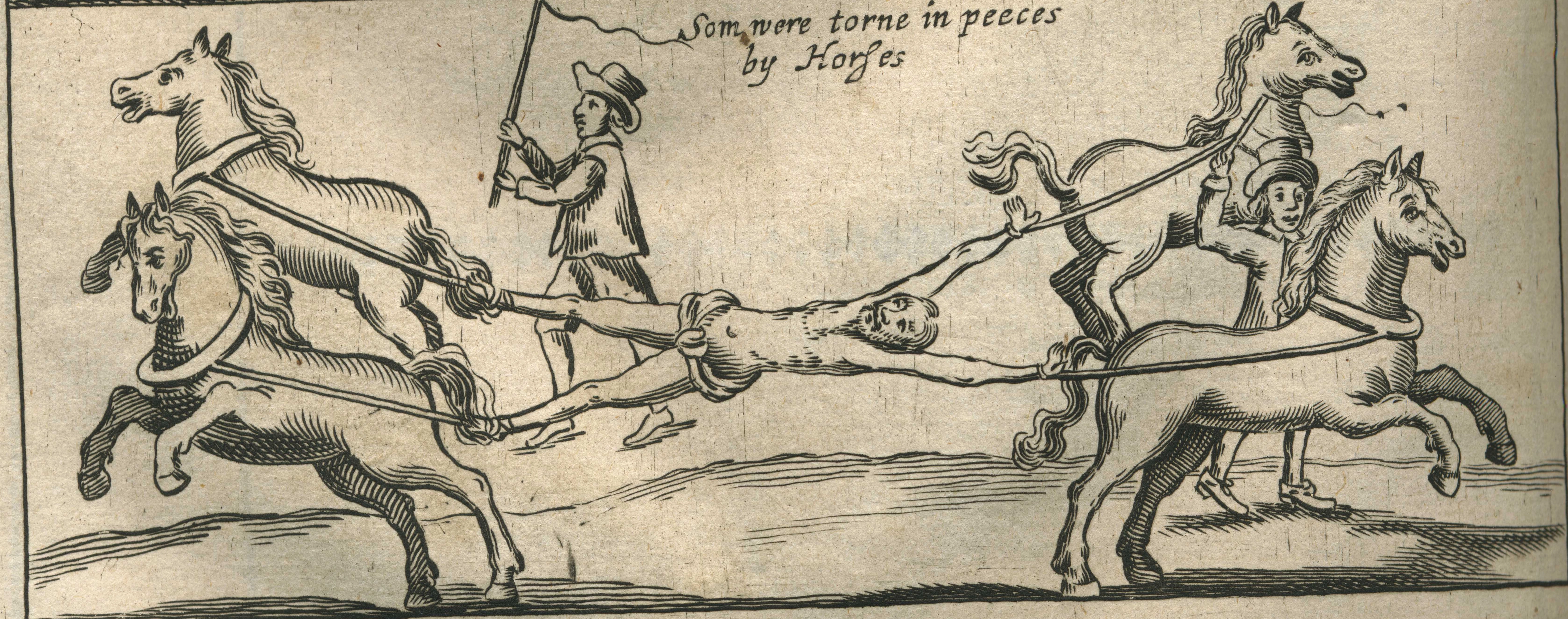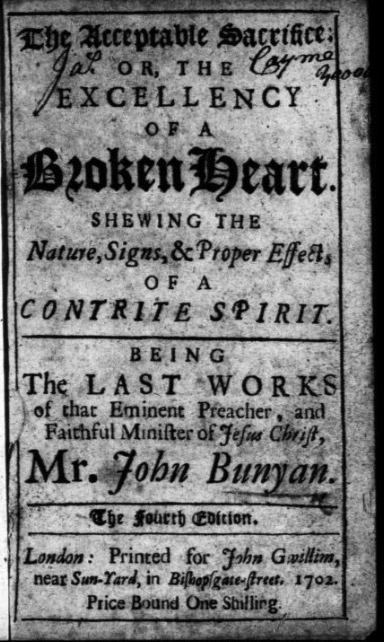
Given that Bunyan accepts the premises of a God who can actually bestow an eternity of bliss on the chosen and a devil who will eternally torture the condemned it makes good sense for him to submit to the metaphorical ‘rod’ of his Lord for the sake of the salvation of his soul. The belief system within which he operates may be a mechanism which engenders institutionalized masochism, particularly, as Melissa Sanchez argues, in the exploitation of that system for political purposes. but, within its own frame of reference, it is perfectly logical and reasonable.
He also shows good sense by taking up the study of law and engaging his wife to plead on his behalf during his time in prison. And when he says, ‘A man is not bound by the Law of his Lord, to put himself into the mouth of his enemy’ (_Seasonable Counsel_, London, 1684, p. 99), he shows he is not lacking in basic common sense.
On the other hand, he makes choices which reveal a particular
predisposition of his character. It is his choice, for example, to base
his Acceptable Sacrifice (London, 1689) on two verses from the Psalms of David – ‘The Lord is nigh vnto them that are of a broken heart; and saueth such as be of a contrite spirit’, and ‘The sacrifices of God are a broken spirit: a broken and a contrite heart, O God, thou wilt not despise’ (KJV, Psalms 34:18 and 51:17) – and it is his choice to interpret these verses as not simply saying that God will favour the broken-hearted, but that God will only favour the broken-hearted: ‘all thy Service he will certainly slight and reject; if when thou comest to him, a broken heart be wanting’ (p. 228).
It is equally written in Bunyan’s Bible that ‘A merry heart maketh a
cheerefull countenance: but by sorrow of the heart, the spirit is
broken’, and ‘A merrie heart doth good like a medicine: but a broken
spirit drieth the bones’ (KJV, Proverbs 15:13 and 17:22). Bunyan could equally well have written a book on these verses, or at least have mentioned them, but while the expression ‘broken heart’ occurs over a hundred times in _Acceptable Sacrifice_, he only uses the word ‘merry’ once, and then in the context of condemnation of the ungodly: ‘What! An Unconverted Man, and Laugh! Shouldest thou see one Singing merry Songs, that is riding up Holbourn, to Tyburn, to be hanged for Felony … Man! Man! Thou hast cause to Mourn; yea, thou must Mourn, if ever thou art Saved’ (p. 209).
What Bunyan says can be justified in terms of his religion, but his
religion does not inevitably lead to the conclusions he reaches. To the extent that he emphasizes the need for a broken heart where he could emphasize – or at least acknowledge – the blessings of a merry one, there is a one-sidedness, a perverse tendency towards making a virtue out of misery, that we can hardly scruple to call masochistic.
(Adapted from Part 1, “The Suffering Self”, Chapter 1, “Constructs of Suffering in Seventeenth-Century England”.)




Comments